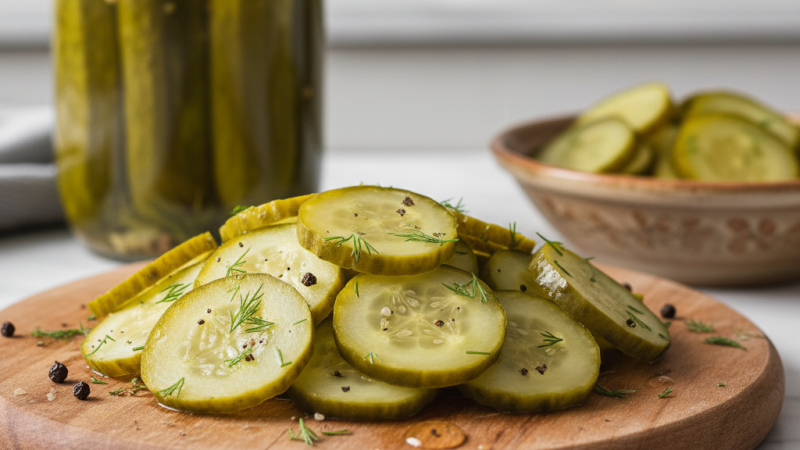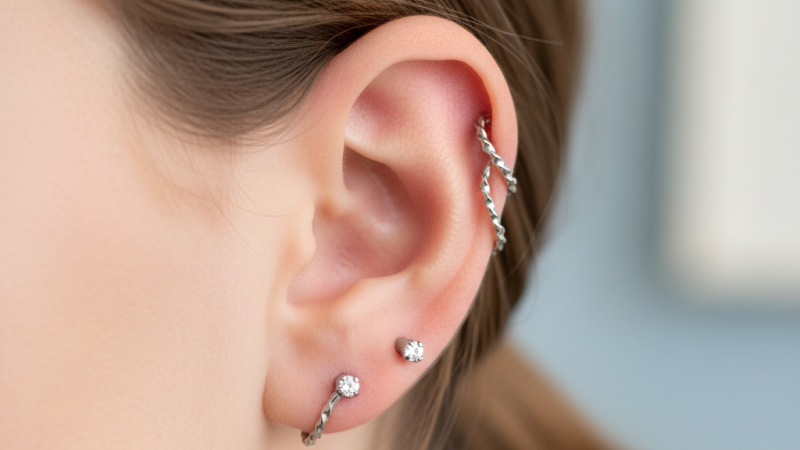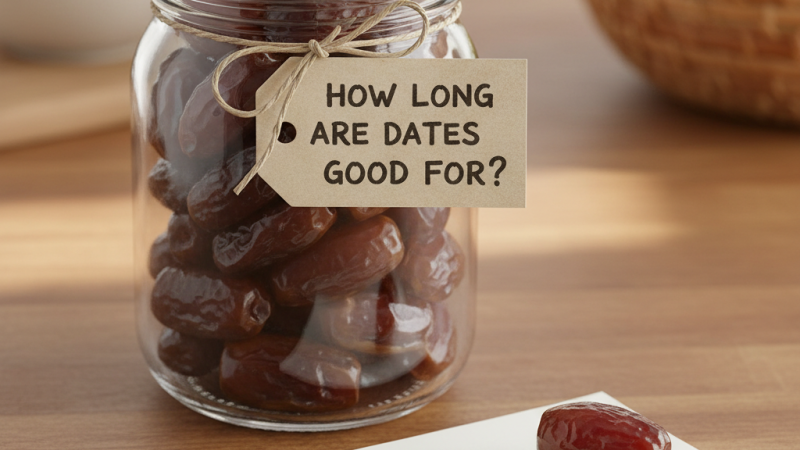Can I Drink Alcohol 24 Hours After Tooth Extraction: Everything You Need to Know About Safe Recovery

Having a tooth pulled ranks among the most anxiety-inducing dental procedures many people face in their lifetime. After enduring the extraction process, you might find yourself wondering whether rewarding yourself with a relaxing drink is acceptable. The question “can I drink alcohol 24 hours after tooth extraction” frequently crosses the minds of patients eager to return to their normal routines. However, understanding the intricate relationship between alcohol consumption and oral surgery recovery could mean the difference between smooth healing and painful complications.
Understanding the Tooth Extraction Healing Timeline
The journey to complete recovery following tooth removal involves several critical phases that your body must navigate successfully. When your dentist or oral surgeon extracts a tooth, whether it’s a simple removal or a complex surgical extraction, they leave behind an empty socket in your jawbone. This hollow space immediately becomes the focus of your body’s remarkable healing mechanisms, triggering a cascade of biological responses designed to protect and repair the wounded tissue.
Within the first few hours following your procedure, your body begins forming what dental professionals call the primary blood clot. This clot acts as nature’s bandage, sealing off the extraction site from external contaminants while providing the foundational structure for new tissue development. The formation of this protective barrier represents the most crucial phase of your recovery, typically occurring within the first twenty-four hours after tooth removal.
As the days progress, granulation tissue begins developing beneath the blood clot, creating a scaffold upon which new bone and gum tissue will eventually form. This delicate process requires optimal conditions, including proper blood flow, adequate hydration, and freedom from substances that might interfere with cellular regeneration. The question of whether you can drink alcohol 24 hours after tooth extraction becomes particularly relevant during these early stages, as disrupting the healing cascade can lead to serious complications.
The Critical First Day Following Tooth Removal
The initial twenty-four hours after having a tooth extracted represent the most vulnerable period in your entire recovery journey. During this window, your body works overtime to establish the blood clot that will protect your wound and facilitate proper healing. Many patients underestimate just how fragile this early healing stage truly is, making decisions that inadvertently compromise their recovery.
When considering whether you can drink alcohol 24 hours after tooth extraction, you must understand that your extraction site remains an open wound exposed to everything that enters your mouth. The socket where your tooth once resided needs complete protection from bacteria, food particles, and any substances that could dissolve or dislodge the forming blood clot. Dental professionals emphasize that this first day sets the foundation for everything that follows in your healing process.
Your body dedicates significant resources to clot formation during these crucial hours. Blood platelets rush to the extraction site, creating a mesh-like structure that stops bleeding and begins the repair process. White blood cells patrol the area, defending against potential infections, while various growth factors signal nearby cells to begin regenerating damaged tissue. Introducing alcohol into this carefully orchestrated biological symphony can disrupt multiple aspects of this healing cascade simultaneously.
Why Alcohol Poses Serious Risks After Dental Extractions
The relationship between alcohol consumption and oral surgery recovery extends far beyond simple inconvenience or mild discomfort. When you drink alcohol shortly after having a tooth pulled, you introduce a powerful chemical compound that affects numerous bodily systems simultaneously, each interference potentially derailing your recovery in different ways.
Alcohol acts as a potent blood thinner, interfering with your body’s natural clotting mechanisms through several pathways. Ethanol reduces platelet aggregation, meaning the tiny blood cells responsible for forming clots cannot stick together as effectively as they should. This anticoagulant effect becomes particularly problematic when you’re trying to establish and maintain the protective blood clot at your extraction site. If you drink alcohol 24 hours after tooth extraction, you significantly increase the risk of continued bleeding or premature clot dissolution.
Beyond blood thinning, alcohol consumption triggers widespread inflammation throughout your body. While controlled inflammation plays an essential role in healing, excessive inflammatory responses can actually slow tissue repair and increase pain levels. The inflammatory compounds released when you metabolize alcohol compete with your body’s natural healing signals, creating confusion at the cellular level that impedes optimal recovery.
Perhaps most concerning, alcohol severely compromises your immune system function. When you drink, ethanol disrupts the production and activity of white blood cells, your body’s primary defense against bacterial infections. Given that your extraction site provides an open pathway for bacteria to enter your tissues, maintaining robust immune function becomes absolutely critical. The immunosuppressive effects of alcohol can persist for hours or even days after consumption, leaving you vulnerable to infections during the most critical healing period.
The Dangerous Phenomenon of Dry Socket
Among the various complications that can arise after tooth extraction, dry socket stands out as one of the most painful and frustrating experiences patients can encounter. Medically termed alveolar osteitis, this condition occurs when the protective blood clot at your extraction site becomes dislodged, dissolves prematurely, or fails to form properly in the first place. The question of whether you can drink alcohol 24 hours after tooth extraction becomes even more pressing when you understand the excruciating nature of this complication.
When dry socket develops, the underlying bone and nerve endings in your jaw become directly exposed to air, food, saliva, and bacteria. Patients describe the pain as throbbing, radiating, and often worse than the original extraction discomfort. This condition typically manifests two to three days after tooth removal, though it can occur earlier when risk factors like alcohol consumption are present. The pain often radiates to your ear, eye, or neck on the affected side, making it difficult to ignore or manage with over-the-counter medications.
Alcohol contributes to dry socket formation through multiple mechanisms. As mentioned earlier, its blood-thinning properties interfere with clot formation and stability. Additionally, the act of drinking alcoholic beverages can create negative pressure in your mouth, especially if you’re consuming drinks quickly or through pursed lips. This suction effect can physically pull the clot away from the extraction site, leaving the socket exposed and vulnerable. The dehydrating effects of alcohol further compromise healing by reducing saliva production, which normally helps keep the extraction area clean and moist.
Statistics reveal that dry socket affects approximately three to five percent of all tooth extractions under normal circumstances. However, this percentage increases dramatically when patients engage in risky behaviors like drinking alcohol during the early recovery period. If you drink alcohol 24 hours after tooth extraction, you could potentially triple or quadruple your risk of developing this painful complication, turning what should be a few days of mild discomfort into weeks of severe pain requiring additional dental interventions.
How Alcohol Interacts With Post-Extraction Medications
Beyond the direct effects alcohol has on your healing tissues, its interactions with commonly prescribed post-extraction medications create additional layers of risk that many patients fail to consider. When pondering whether you can drink alcohol 24 hours after tooth extraction, you must account for the various pharmaceuticals you might be taking to manage pain, prevent infection, or control inflammation.
Dentists frequently prescribe opioid pain relievers following tooth extractions, including medications like hydrocodone, oxycodone, or codeine combinations. These drugs work by binding to opioid receptors in your brain and nervous system, dulling pain signals and creating a sense of relaxation. Alcohol affects many of the same neural pathways, amplifying the sedative effects of these medications to dangerous levels. The combination can cause severe drowsiness, dizziness, impaired judgment, and in extreme cases, respiratory depression or loss of consciousness.
Even over-the-counter pain medications carry risks when combined with alcohol. Acetaminophen, commonly known by the brand name Tylenol, requires your liver to metabolize both the medication and any alcohol you consume. Your liver can only process a limited amount of these substances at once, and overwhelming this organ can lead to acute liver damage or failure. Similarly, combining alcohol with nonsteroidal anti-inflammatory drugs like ibuprofen increases your risk of stomach bleeding, ulcers, and gastrointestinal damage.
Antibiotic prescriptions present their own concerns when mixed with alcohol. While not all antibiotics interact dangerously with ethanol, several commonly prescribed options can cause unpleasant reactions. Metronidazole, sometimes prescribed for dental infections, can trigger severe nausea, vomiting, headaches, and rapid heart rate when combined with alcohol. Other antibiotics may simply become less effective when you drink, as alcohol can interfere with their absorption and metabolism, potentially allowing infections to persist or worsen.
The Dehydration Factor in Oral Surgery Recovery
Water makes up approximately sixty percent of your body weight and plays irreplaceable roles in virtually every biological process, including wound healing. When considering whether you can drink alcohol 24 hours after tooth extraction, understanding alcohol’s dehydrating effects becomes essential to appreciating why abstinence matters so much during recovery.
Alcohol functions as a diuretic, meaning it increases urine production and causes your body to expel more fluid than you’re taking in. This happens because ethanol suppresses the release of vasopressin, an antidiuretic hormone that normally signals your kidneys to reabsorb water rather than eliminating it. When you drink alcohol, you essentially tell your kidneys to release more water, leading to increased trips to the bathroom and progressive dehydration if you don’t compensate with additional non-alcoholic fluids.
Dehydration profoundly impacts your ability to heal from tooth extraction. Your body needs adequate fluid levels to transport nutrients to the extraction site, remove metabolic waste products, maintain optimal blood volume for clot formation, and support the immune cells fighting off potential infections. When you become dehydrated, blood becomes thicker and flows less efficiently, reducing the delivery of healing factors to where they’re needed most. Your saliva production also decreases, removing one of your mouth’s natural cleansing and protective mechanisms.
The mucous membranes in your mouth prove particularly sensitive to dehydration. When properly hydrated, these tissues remain moist, flexible, and resistant to irritation. Dehydration causes them to become dry, tight, and more prone to cracking or additional injury. At your extraction site, adequate hydration helps maintain the moisture level necessary for tissue regeneration and prevents the socket from becoming too dry, which can increase discomfort and slow healing. If you drink alcohol 24 hours after tooth extraction, you’re actively working against these essential hydration needs during the most critical healing period.
Recommended Waiting Periods Before Resuming Alcohol Consumption
The timing question “can I drink alcohol 24 hours after tooth extraction” has a clear answer from dental professionals: absolutely not. However, understanding exactly how long you should wait requires considering several factors related to your specific extraction and overall health status.
Most dental experts recommend a minimum waiting period of seventy-two hours, or three full days, before consuming any alcoholic beverages following a standard tooth extraction. This timeframe allows your blood clot to stabilize, initial tissue healing to begin, and the most critical vulnerability period to pass. However, this represents the absolute minimum for straightforward extractions with no complications. Many dentists prefer their patients wait a full week to ten days before drinking alcohol after tooth extraction, providing an even greater margin of safety.
Complex extractions demand extended abstinence periods. If you underwent surgical extraction of impacted wisdom teeth, had multiple teeth removed simultaneously, or experienced complications during your procedure, you should plan on avoiding alcohol for at least one to two weeks. These more involved procedures create larger wounds, more extensive tissue trauma, and longer healing timelines. The risk of complications like dry socket, infection, or prolonged bleeding remains elevated for a more extended period, making early alcohol consumption particularly dangerous.
Individual factors also influence the appropriate waiting period. People with compromised immune systems, diabetes, smoking habits, or other health conditions that affect healing should wait even longer before drinking alcohol after tooth extraction. Your age plays a role as well, as older adults generally heal more slowly than younger patients. If you’re taking any medications with potential alcohol interactions, you must wait until you’ve completely finished your prescription course before considering drinking.
What Happens If You Ignore the Waiting Period
Some patients convince themselves that having just one drink won’t cause problems, or that the warnings about alcohol consumption after dental surgery are overly cautious. Understanding the potential consequences of drinking alcohol 24 hours after tooth extraction might convince you that the temporary sacrifice is worthwhile compared to the complications you could face.
The most immediate risk involves bleeding resumption at your extraction site. Even if bleeding had stopped completely, alcohol’s blood-thinning effects can cause it to start again, potentially quite heavily. This renewed bleeding not only delays healing but can also dislodge the forming blood clot, opening the door to dry socket development. Patients who drink too soon often find themselves dealing with blood-soaked gauze, unpleasant tastes, and concerning amounts of blood in their saliva for hours after consuming alcohol.
Infection risk escalates dramatically when you introduce alcohol during the early recovery phase. Your weakened immune defenses cannot adequately protect the vulnerable extraction site from the bacteria naturally present in your mouth. An infected socket manifests as increasing pain several days after extraction, often accompanied by fever, swelling, foul odor or taste, and sometimes visible pus. Treating these infections requires additional antibiotics, multiple dental visits, and can significantly extend your overall recovery timeline from days to weeks.
The pain intensification caused by premature alcohol consumption shouldn’t be underestimated. Many patients report that drinking too soon after their extraction led to throbbing pain far worse than what they experienced immediately after the procedure. This increased discomfort results from the inflammatory response alcohol triggers, the potential for clot disruption, and tissue irritation from the alcohol itself. You might find yourself unable to manage the pain even with prescribed medications, leading to sleepless nights and considerable suffering that could have been entirely avoided.
Healthy Alternatives to Alcohol During Your Recovery Period
Rather than focusing on what you cannot consume, redirecting your attention to beverages that actively support healing can make the alcohol-free recovery period more manageable and even beneficial. When you accept that you cannot drink alcohol 24 hours after tooth extraction, or for several days beyond, exploring these alternatives helps maintain your comfort and accelerates healing.
Water stands as the undisputed champion of recovery beverages. Room temperature or cool water hydrates your tissues without irritating the extraction site, helps flush bacteria from your mouth, and supports all the cellular processes necessary for healing. Aim for eight to ten glasses throughout the day, sipping slowly rather than gulping to avoid creating suction that could disturb your blood clot. If plain water feels boring, try adding a small amount of cucumber slices or a squeeze of lemon once you’re past the first day, though avoid anything too acidic initially.
Herbal teas offer both hydration and potential therapeutic benefits, provided you let them cool to lukewarm or room temperature before drinking. Chamomile tea contains anti-inflammatory compounds that may help reduce swelling and promote relaxation without the risks associated with alcohol. Peppermint tea can soothe oral tissues and freshen your breath naturally. Ginger tea provides gentle nausea relief, which some patients experience from pain medications or the extraction procedure itself. Just ensure you’re not drinking these teas hot, as heat can increase blood flow to the extraction site and potentially cause bleeding.
Nutrient-rich smoothies and protein shakes serve double duty by providing both hydration and easily consumed calories when chewing feels uncomfortable. Blend soft fruits like bananas, berries, or mangoes with yogurt or milk for a filling option that doesn’t require chewing. Adding protein powder helps support tissue repair and keeps you satisfied longer. Avoid using straws when consuming these beverages, as the sucking motion creates negative pressure that could dislodge your blood clot. Instead, drink directly from a cup or use a spoon for thicker smoothies.
Dietary Considerations Beyond Beverage Choices
While the focus naturally centers on whether you can drink alcohol 24 hours after tooth extraction, your overall dietary approach during recovery plays an equally important role in successful healing. The foods you eat or avoid can either support or hinder your body’s repair efforts.
Soft, nutrient-dense foods should dominate your diet for at least the first few days following tooth removal. Mashed potatoes, scrambled eggs, yogurt, pudding, applesauce, and well-cooked oatmeal provide necessary calories and nutrients without requiring significant chewing that could disturb the extraction site. These foods also minimize the risk of food particles becoming lodged in the socket, which could introduce bacteria and cause irritation or infection. As you progress through your recovery, you can gradually introduce slightly more textured foods, always chewing on the opposite side of your mouth from the extraction.
Protein intake deserves special attention during your healing period, as your body needs amino acids to rebuild damaged tissues. Soft protein sources like Greek yogurt, cottage cheese, protein shakes, eggs, and pureed beans can help meet these increased demands without causing discomfort. Some patients find that their appetite decreases after tooth extraction, making it challenging to consume enough protein through regular meals. In these cases, supplementing with protein drinks between meals ensures your body has the building blocks necessary for optimal tissue repair.
Temperature awareness extends beyond just avoiding hot beverages. Extremely cold foods, while generally safer than hot options, can still cause sensitivity and discomfort at your extraction site. Stick with foods and drinks that are cool to lukewarm, avoiding temperature extremes in either direction. Ice cream, while soft and seemingly ideal, should be consumed with caution and only after the first day, as the extreme cold can sometimes increase pain sensitivity in the early stages of healing.
Proper Oral Hygiene Without Disturbing the Extraction Site
Maintaining oral cleanliness after tooth extraction presents a delicate balance between keeping your mouth clean to prevent infection and avoiding actions that might disturb the healing process. Many patients worry about proper hygiene when they’re wondering whether they can drink alcohol 24 hours after tooth extraction, but the focus should really be on gentle, effective cleaning techniques.
For the first twenty-four hours after your extraction, avoid brushing the teeth immediately adjacent to the extraction site and do not rinse your mouth vigorously. Your dentist likely placed gauze over the socket and instructed you to bite down gently for thirty to forty-five minutes, allowing the blood clot to form undisturbed. After this initial period, you can carefully brush the rest of your teeth, being extremely gentle near the extraction area. Use a soft-bristled toothbrush and avoid brushing directly over the socket for at least the first few days.
Salt water rinses become your best friend starting twenty-four hours after extraction, but they must be performed correctly to avoid dislodging the clot. Mix half a teaspoon of salt into eight ounces of warm water, take a small sip, and gently move the liquid around your mouth without vigorous swishing or spitting forcefully. Allow the water to fall out of your mouth rather than generating pressure by spitting. Repeat this process after meals and before bed to keep the extraction site clean without disrupting healing. These gentle rinses help reduce bacteria levels, minimize inflammation, and keep the area clean without the risks associated with alcohol-based mouthwashes.
Speaking of mouthwashes, you should avoid commercial options containing alcohol during your recovery period. These products can irritate the extraction site, dry out your oral tissues, and potentially interfere with healing. If your dentist prescribes an antimicrobial rinse, follow their instructions precisely regarding when to start using it and how often to apply it. Most dentists recommend waiting at least twenty-four hours before introducing any mouth rinse, and some prefer you wait even longer before using medicated options.
Physical Activity Restrictions During Early Recovery
The question of alcohol consumption isn’t the only lifestyle consideration during tooth extraction recovery. Physical activity levels can significantly impact your healing process, with recommendations that might surprise patients accustomed to maintaining active routines.
For at least the first twenty-four to forty-eight hours after your extraction, plan on taking it extremely easy. Avoid any strenuous exercise, heavy lifting, or activities that increase your heart rate and blood pressure significantly. When your cardiovascular system works harder, blood pressure rises, and increased blood flow to your head can cause renewed bleeding at the extraction site or prevent proper clot formation. This means no gym workouts, running, cycling, swimming, or similar activities that get your heart pumping. Even household tasks like vacuuming, moving furniture, or yard work should be postponed until you receive clearance from your dentist.
Rest plays a crucial healing role that patients often underestimate. Your body repairs damaged tissues most efficiently when you’re at rest, as energy and resources that would otherwise fuel activity can be redirected toward healing processes. Plan to spend the first day after your extraction relaxing at home, keeping your head elevated above heart level when lying down to minimize swelling and reduce the risk of bleeding. Many patients find that taking a day off work or school after tooth extraction allows them to rest properly and monitor their recovery without stress or pressure to perform normal activities.
As you progress through the first week, you can gradually resume light activities, but continue avoiding anything that significantly elevates your heart rate or involves risk of facial impact. This gradual reintroduction allows you to assess how your body responds without overwhelming your healing tissues. If you experience increased pain, swelling, or bleeding when resuming activities, scale back and give yourself more recovery time. Remember that healing timelines vary among individuals, and pushing yourself too hard too soon can result in complications that extend your overall recovery period far beyond a few extra days of rest.
When to Contact Your Dentist About Complications
Even with perfect adherence to all recovery guidelines, complications can occasionally occur. Knowing when to seek professional help ensures that minor issues don’t escalate into serious problems, regardless of whether you avoided alcohol or mistakenly consumed it during the restricted period.
Persistent or worsening pain that doesn’t respond to prescribed medications warrants immediate dental attention. While some discomfort is normal after tooth extraction, pain should gradually decrease over the first few days. If you experience increasing pain two to three days after your procedure, especially pain that radiates to your ear or neck, dry socket may have developed. This condition requires professional treatment involving cleaning the socket, applying medicated dressings, and potentially prescribing stronger pain management options.
Excessive bleeding beyond the first few hours indicates a problem requiring evaluation. Small amounts of blood-tinged saliva are normal for the first day, but active bleeding that soaks through gauze pads within minutes, continues beyond eight to twelve hours, or resumes heavily after initially stopping suggests clot disruption or other complications. Contact your dentist immediately if you experience this type of bleeding, especially if it’s accompanied by dizziness or weakness that might indicate significant blood loss.
Signs of infection demand prompt attention to prevent the spread of bacteria to surrounding tissues or your bloodstream. Watch for increasing swelling that worsens after the third day, fever above 100.4°F (38°C), foul odor or taste coming from the extraction site, visible pus or discharge, difficulty swallowing or breathing, or swelling that extends to your neck or face beyond the immediate extraction area. These symptoms suggest an infection that requires antibiotic treatment and possibly additional dental interventions.
Long-Term Considerations for Oral Health After Extraction
Successfully navigating the immediate recovery period represents only the beginning of your post-extraction oral health journey. Understanding the long-term implications of tooth removal helps you maintain optimal oral health and avoid future complications, whether you’re dealing with a single extracted tooth or multiple removals.
The space left by your extracted tooth will undergo significant changes over the months and years following removal. Without a tooth root to stimulate the jawbone, that area will gradually lose bone density through a process called resorption. This bone loss can affect the stability of neighboring teeth, potentially causing them to shift or drift into the empty space. Such movement can alter your bite alignment, create new spaces between teeth, and even affect your facial appearance over time. Discussing tooth replacement options with your dentist, such as dental implants, bridges, or partial dentures, can help preserve bone structure and prevent these unwanted changes.
Your remaining teeth require extra attention after an extraction, as the procedure and recovery period may have disrupted your normal oral hygiene routine. Once you’ve fully healed, ensure you’re brushing twice daily, flossing regularly, and maintaining scheduled dental checkups and cleanings. The teeth adjacent to the extraction site may be particularly sensitive initially, but this sensitivity should gradually decrease as the area completely heals and the gum tissue adapts to the new contours of your mouth.
Learning from the experience can help you protect your remaining teeth from conditions that might necessitate future extractions. If your tooth removal resulted from advanced decay or gum disease, work with your dentist to address the underlying factors that contributed to tooth loss. This might involve improving your home care routine, addressing dietary habits that promote decay, treating gum disease more aggressively, or managing medical conditions like diabetes that affect oral health. Taking these proactive steps helps ensure the extraction you’ve just endured remains an isolated event rather than the beginning of progressive tooth loss.
Frequently Asked Questions
What happens to my blood clot if I drink alcohol 24 hours after tooth extraction?
Consuming alcohol within the first day after tooth removal can severely compromise your blood clot formation and stability. The anticoagulant properties of ethanol interfere with platelet aggregation, preventing blood cells from sticking together properly to form a solid clot. Additionally, alcohol causes dehydration that makes your blood thicker and less conducive to proper clotting. If you already have a forming clot, alcohol can cause it to break down prematurely or become dislodged, leaving the underlying bone and nerves exposed. This creates an extremely painful condition called dry socket that requires additional dental treatment and significantly extends your recovery time. The blood clot serves as your extraction site’s primary protection against bacteria and physical trauma, so anything that threatens its integrity poses serious risks to your healing process.
How long should I really wait before drinking alcohol after tooth extraction?
The minimum recommended waiting period stands at seventy-two hours or three full days for simple, uncomplicated tooth extractions. However, most dental professionals prefer patients wait between seven and ten days before consuming alcoholic beverages. This extended timeframe provides a more comfortable safety margin, ensuring your blood clot has fully stabilized, initial tissue healing is well underway, and your risk of complications like dry socket or infection has substantially decreased. For surgical extractions, impacted wisdom tooth removal, or cases involving multiple teeth, you should extend this waiting period to at least two weeks or until your dentist confirms during a follow-up appointment that healing is progressing normally. Individual factors such as age, overall health status, smoking habits, and medications being taken may necessitate even longer abstinence periods. Rather than counting down the hours until you can drink again, focus on prioritizing your healing and following your dentist’s specific recommendations for your situation.
Can I drink beer or wine instead of hard liquor after tooth extraction?
The type of alcoholic beverage makes no meaningful difference when it comes to extraction recovery risks. Beer, wine, and distilled spirits all contain ethanol, the compound responsible for alcohol’s negative effects on healing. While they may have different alcohol concentrations, even lower-alcohol options like beer still provide enough ethanol to thin your blood, suppress your immune system, cause dehydration, and potentially interact with pain medications. Some patients mistakenly believe that beer or wine might be gentler on their extraction site, but the carbonation in beer actually creates additional risks by generating bubbles that could disturb your blood clot. Wine’s acidity can irritate healing tissues and potentially dissolve the protective clot. Rather than trying to find a “safer” alcoholic option, commit to complete abstinence from all forms of alcohol during your dentist’s recommended recovery period. Your extraction site can’t distinguish between different types of drinks, it simply responds to the presence of alcohol regardless of the source.
Will one small drink really cause problems if I’m careful?
Even a single alcoholic beverage during the critical early recovery period can compromise your healing and increase complication risks. There’s no safe threshold or amount of alcohol that won’t affect your blood clotting ability, immune function, and hydration status. The blood-thinning effects of alcohol begin within minutes of consumption and persist for hours, plenty of time to interfere with clot stability at your extraction site. Your immune system’s response to alcohol occurs with any amount, leaving you more vulnerable to bacterial infections at precisely the time when your mouth contains an open wound. Additionally, if you’re taking any pain medications or antibiotics, even a small amount of alcohol can trigger dangerous drug interactions regardless of the quantity consumed. Many patients who convinced themselves that one drink wouldn’t hurt later found themselves dealing with dry socket, renewed bleeding, or infections that required additional dental treatment. The temporary pleasure of that single drink simply isn’t worth the potential for weeks of severe pain and extended recovery time.
What if I accidentally drank alcohol after my tooth extraction?
If you’ve already consumed alcohol shortly after your extraction, don’t panic but do take immediate protective measures. Stop drinking immediately and switch to water to begin counteracting the dehydrating effects. Monitor your extraction site closely for signs of complications including renewed bleeding, increasing pain, or symptoms of clot disruption. Avoid lying completely flat, instead keeping your head elevated above heart level to minimize blood flow to the area. Do not rinse your mouth vigorously or disturb the extraction site in any way. Contact your dentist’s office as soon as possible to report what happened and ask for specific guidance based on your situation. They may want to schedule an earlier follow-up appointment to check for complications or provide additional instructions for protecting your healing socket. Be completely honest with your dental provider about how much you drank and when, as this information helps them assess your risk level accurately. Going forward, strictly avoid all alcohol for the full recommended recovery period, as you’ve already compromised your healing and face elevated risks of complications.
Does alcohol-free beer or wine affect tooth extraction healing?
Alcohol-free versions of beer and wine eliminate the ethanol-related concerns regarding blood thinning, immune suppression, and medication interactions. However, these beverages still present some minor considerations for extraction recovery. Many non-alcoholic options retain the acidity of their alcoholic counterparts, which could potentially irritate your healing extraction site or affect the stability of your blood clot if consumed in large quantities. The carbonation in alcohol-free beer creates bubbles that might disturb your extraction area if you’re not careful. Additionally, some alcohol-free beverages still contain small amounts of alcohol, typically less than 0.5 percent, though this minimal amount is unlikely to cause significant problems. If you choose to consume alcohol-free alternatives during your recovery, wait until at least twenty-four hours after your extraction, drink them slowly at room temperature rather than cold, avoid swishing them around your mouth, and don’t consume them through straws. Water, herbal tea, and other non-carbonated, non-acidic beverages remain safer choices during the critical early healing period.
My extraction site feels fine, so can I drink alcohol sooner than recommended?
The absence of pain or obvious problems doesn’t mean your extraction site has healed enough to safely tolerate alcohol consumption. Much of the critical healing process occurs beneath the surface where you can’t see or feel it. Your blood clot might appear stable but still be vulnerable to disruption from alcohol’s blood-thinning effects. Tissue regeneration happens at the cellular level over many days, requiring proper blood flow, hydration, and immune function that alcohol compromises regardless of whether you’re experiencing symptoms. Many patients who felt fine and decided to drink earlier than recommended later developed complications like dry socket that manifested two to three days after alcohol consumption, not immediately. Your body’s pain response sometimes lags behind actual tissue damage, meaning you might not feel problems until they’ve already become severe. Additionally, medications you’re taking could be masking discomfort that would otherwise alert you to developing issues. Rather than using how you feel as a guide for when to resume drinking alcohol, rely on the timeline provided by your dental professional who understands the biological healing processes that must complete before alcohol becomes safe.
Can alcohol affect how my stitches heal after tooth extraction?
If your extraction required sutures to close the surgical site, alcohol consumption poses additional risks beyond those associated with non-sutured extractions. The stitches hold your gum tissue in position while healing occurs, and they need adequate time to do their job before facing any challenges. Alcohol’s blood-thinning properties can cause bleeding around the sutures, potentially loosening them or preventing the tissues they’re holding from properly joining together. The inflammatory response triggered by alcohol can increase swelling around the sutured area, placing additional tension on the stitches and possibly causing them to tear through tissue before healing is complete. Alcohol’s immune-suppressing effects increase infection risk around sutures, potentially leading to suture abscess or wound dehiscence where the sutured area separates and reopens. If your dentist used dissolvable sutures, alcohol might affect the rate at which they break down, though this typically isn’t a major concern compared to other risks. Whether your sutures are dissolvable or require removal, avoid all alcohol consumption for at least one week after sutured extractions, and preferably until after your follow-up appointment when your dentist confirms proper healing.
What should I do if I have a special event soon after my tooth extraction?
Planning around social events that typically involve alcohol requires thoughtful decision-making that prioritizes your health and recovery. If you know about an upcoming wedding, party, or celebration, consider scheduling your tooth extraction to allow adequate recovery time beforehand or waiting until after the event to have the procedure done, if your dental situation allows for that flexibility. When the extraction timing can’t be adjusted and you face an event during your recovery period, commit to abstaining from alcohol regardless of social pressure or temptation. Explain your situation to friends and family beforehand so they understand why you’re not drinking and won’t repeatedly offer you alcoholic beverages. Focus on other aspects of the celebration like conversation, food choices within your dietary restrictions, and simply enjoying time with people you care about. Consider bringing your own alcohol-free alternatives that you enjoy so you have something interesting to drink while others consume alcohol. Remember that one night of social drinking isn’t worth weeks of painful complications and extended recovery. True friends will understand and respect your health-focused decision, and you’ll likely find you can enjoy the event just as much without alcohol when you’re not worried about damaging your healing extraction site.
Are there any circumstances where my dentist might allow alcohol sooner?
Dental professionals universally recommend against alcohol consumption during the early recovery period after tooth extraction, with no legitimate medical circumstances that would make earlier drinking advisable or safe. The biological realities of healing don’t change based on personal preferences, and responsible dentists won’t provide patients with approval to consume alcohol before adequate healing has occurred. If you hear about someone whose dentist supposedly told them drinking after twenty-four hours was acceptable, that information is either being misremembered, taken out of context, or came from a provider not following evidence-based practice standards. Some patients attempt to negotiate with their dental providers, citing special events or personal reasons why they need to drink sooner than recommended. However, dental professionals have ethical obligations to provide advice based on what’s medically best for patients, not what patients want to hear. If your dentist gives you a specific timeline for avoiding alcohol, that recommendation is based on clinical experience and understanding of healing processes, not arbitrary rules meant to inconvenience you. Follow their guidance precisely rather than searching for loopholes or exceptions that don’t exist.






